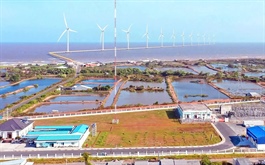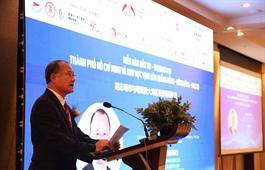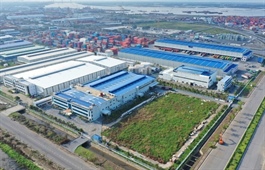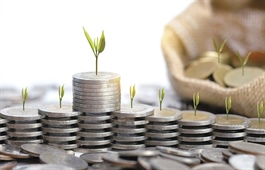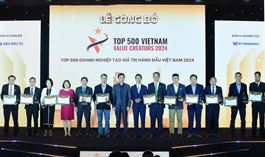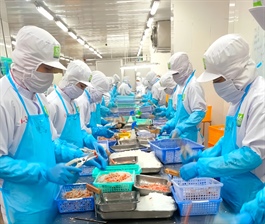Businesses pivotal in offsetting carbon measures in Vietnam
Businesses pivotal in offsetting carbon measures in Vietnam
Quantifying carbon emissions and implementing offset measures are being called urgent and a key factor to help businesses thrive in the green economy.
Carbon markets could unlock a total revenue of $3 trillion for Southeast Asian countries by 2050, according to a joint report by carbon market platform Abatable, the ASEAN Alliance for Carbon Markets, and advisory firm Equatorise.
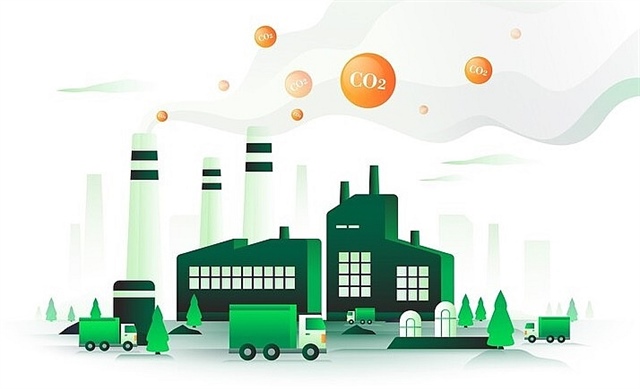
Businesses pivotal in offsetting carbon measures in Vietnam, Source: freepik.com |
The cumulative revenue of $3 trillion could be generated through the reduction or removal of emissions equivalent to 1.1 gigatonnes per year of CO2, stated the December 4 report. The amount is made up of estimated potential total values of reducing emissions from deforestation and degradation markets at $27 billion annually, blue carbon markets at $96 billion per year, and biochar carbon markets at $144 billion per year by 2050.
Southeast Asia has significant potential to supply carbon credits through nature-based solutions, the report added. A novel type of project that the region can look into is biochar, which is created from agricultural or forestry residues, of which ASEAN has in abundance.
The projected amount is significant when considering the wider Asia-Pacific region needs at least $1.1 trillion per year in climate financing but is facing a shortfall of at least $815 billion per year.
Vietnam will operate its carbon credit market on a trial basis during 2025-2028 without any sales to non-nationals, as well as regulations on credit exchanges with regional and global markets. Over the three years, international transactions will not be made, except for carbon exchange activities under international agreements.
From 2029, the market will be fully operated across the nation, with a study of the ability to link up with international markets. It aims to improve the competitive edge of Vietnamese firms both domestically and internationally, branching out a low-carbon economy, and responding to climate change towards the net-zero target by 2050.
Several manufacturers in Vietnam are getting to work for GHG emission mitigation. Binu Jacob, CEO of Nestlé Vietnam, emphasised that sustainability is an essential part of the company’s long-term business strategy.
Nestlé has implemented a comprehensive strategy to reduce carbon emission levels, optimise supply chains, and invest in renewable energy in Vietnam. However, 90 per cent of businesses in Vietnam still lack in-depth knowledge and clear direction in this area.
“We have developed a specific roadmap to achieve this goal. In 2020, Nestlé announced a net-zero roadmap based on the Science-Based Targets Initiative to reduce emissions. This plan allows us to leave behind the highest carbon emissions and achieve positive results towards the GHG reduction target of reducing by 20 per cent by 2030 and reaching net-zero by 2050,” Jacob said.
In Vietnam, Nestlé contributes to sustainable development goals in agriculture, water resource management, promoting the circular economy, health and nutrition, and efforts to empower women.
According to Nguyen Dinh Tho, general director of the Institute of Strategy and Policy on Natural Resources and Environment under the Ministry of Natural Resources and Environment, establishing a carbon credit market is an important solution to fulfil the commitment to achieve net-zero emissions by 2050. Specifically, priority sectors for emission reduction include food and agriculture, construction, transportation, and textiles and garments.
“The carbon market is not only an important tool to reduce emissions but also opens up financial opportunities for developing countries,” Tho stressed. “At COP29, developed countries committed to provide $300 billion per year to support developing countries, but this amount is still insufficient to meet the actual needs, estimated to reach up to $2.4 trillion per year by 2035.”
He stated that failing to meet international standards could lead to serious economic losses, especially as international export market regulations are becoming increasingly stringent. “In the textile and garment sector, Vietnam has lost 10 per cent of revenue from late 2021 to 2023, equivalent to $5 billion, for not meeting green standards compared to Bangladesh,” Tho said.
Nguyen Quang Vinh, vice chairman of the Vietnam Chamber of Commerce and Industry, and chairman of the Vietnam Business Council for Sustainable Development, believed that businesses play an increasingly important role in sustainable development in globalisation.
“Quantifying carbon emissions and implementing offset measures not only meet the urgent requirements of the era but also a key factor to help businesses survive and thrive in the green economy,” Vinh said. “Therefore, close cooperation between the business sector and state management agencies is essential to minimise impacts on biodiversity and ensure a balance between economic growth and environmental protection.”



